Farm Ponds Are More Than Just Water
Since 1986, the two-acre pond strategically located on Danny McConnell’s farm in Henderson County has been a plant lifeline during both frosts and drought-like conditions.
McConnell, who serves as county president and on the state board of directors, sends water through a state-approved pump to irrigate peppers, cucumbers, asparagus and other vegetables that end up on the produce aisle at grocers in Hendersonville, Asheville and beyond.
That same water also helps keep tender strawberry and raspberry plants from succumbing to the effects of a late, Western North Carolina frost.
“If we did not have that pond, we wouldn’t be in the fruit and vegetable business,” McConnell says.
Farm ponds like McConnell’s often serve a variety of purposes. They might be a primary source for irrigation. They might be the place where cattle go to hydrate. Or they might be a place to relax and leisurely cast a fishing line.
“Our ponds are very important,” says Farm Bureau member Danny Allen, who serves on the Iredell County board and operates a tree nursery.
Allen used his 300-acre tract in Harmony, north of Statesville, to grow tobacco for many years. A half dozen ponds supplied the water that flowed through large irrigation pipes and sprayers that fed the golden leaf. Allen still has the tobacco irrigation equipment, but it lies idle now.
Instead, Allen uses his ponds as the irrigation source for ornamental trees, which need only a fraction of the water that tobacco did. Black tubes a little smaller than garden hose lie along the stumps of close to 400 different varieties of trees that often end up as the key components to landscaping projects.
While Allen’s trees usually need at least four years to mature enough to be harvested, he says it’s the first year a seedling is in the ground that is critical and when farm pond irrigation plays a crucial role.
“When you’ve got newly planted trees you’ve got to have a source for irrigation for them,” Allen says. “They’re just too valuable, too expensive to replace if you don’t have that irrigation system, especially for the first two years after you plant the tree. You just can’t afford to be without it. You can have $10,000 to $12,000 invested per acre and that’s something you don’t want to take a chance on without irrigation.”
Enjoying Farm Pond Fishing
On the other side of the state, Special Superior Court Judge and Pender County Farm Bureau member Gary E. Trawick doesn’t use his pond to water vegetables or trees. But for Trawick, it’s still vitally important to his property.
“I have never outgrown fishing in farm ponds,” Trawick says. “While I fish in rivers, creeks, mountain streams and even the ocean, I still often have to go back to the farm pond.”
Besides being a place where his fishing success can be much greater, Trawick’s farm pond gives great joy in the fact it is the place where he fishes with his grandson Jarrett. A pond fully stocked with bream and bass gives both generations hours of enjoyment.
Trawick fondly recalls how 4-year-old Jarrett reeled in a bass that weighed about 2 pounds.
“When you’re 4 years old and it’s your first fishing trip, that’s equal to a tarpon in the Gulf,” Trawick says. “I have fished the San Juan in New Mexico and the Big Horn in Montana, but I wouldn’t trade the look on Jarrett’s face when he set the hook in that bass’ mouth in our farm pond for any of those experiences.”
More Uses for Farm Ponds
Some North Carolina landowners simply want fish to flourish in their contained body of fresh water.
Jim Rice, an extension fisheries specialist with the N.C. State University Fisheries and Pond Management Extension, works with landowners on legally and safely raising a variety of freshwater fish in a fertile aquatic setting.
Rice conducts training workshops and develops educational materials for county extension agents and the public on warm-water pond fisheries management, including pond design and site selection, fish stocking and harvest, water quality management, liming and fertilization, and common pond problems.
Rice also leads the 4-H Fisheries and Aquatic Resources program. It includes training workshops for teachers and other educators on aquatic ecology, which incorporates hands-on aquatic ecology classes at camps and field days for about 600 elementary school students per year.



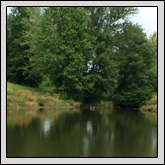
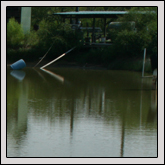
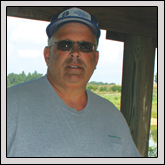
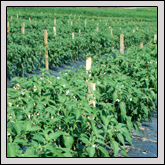
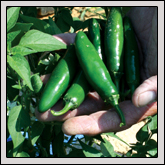
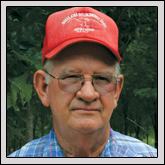
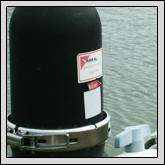
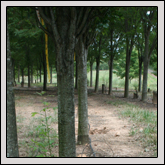

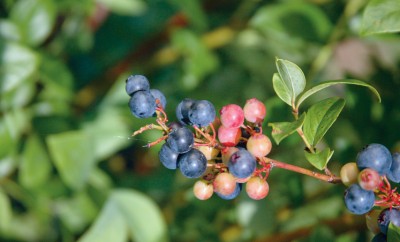
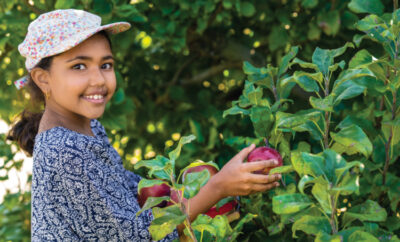
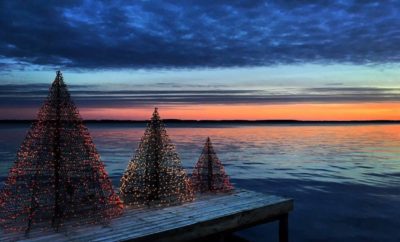
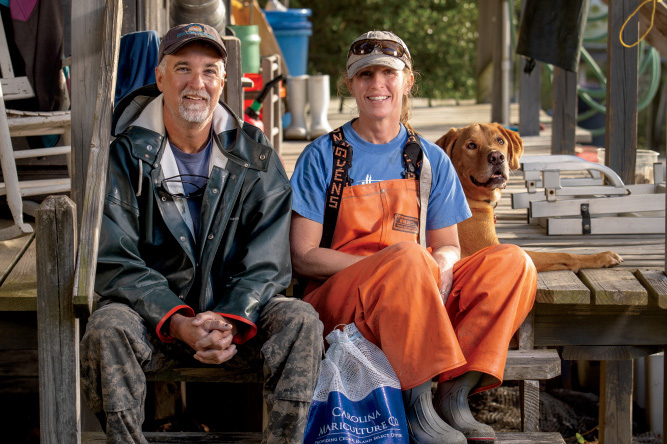
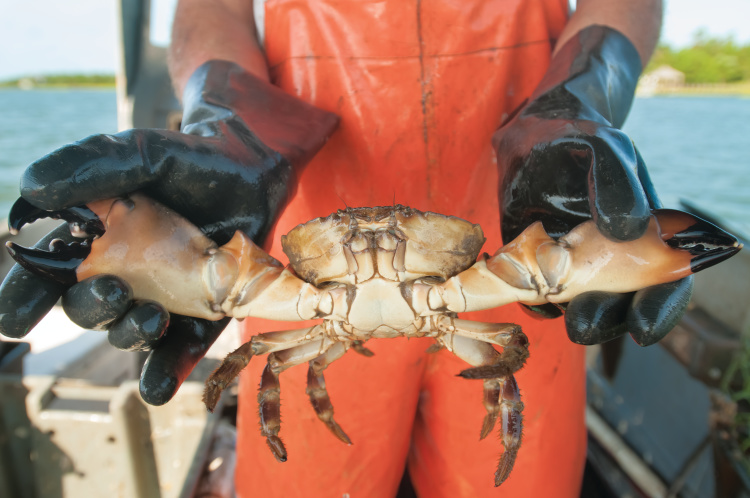
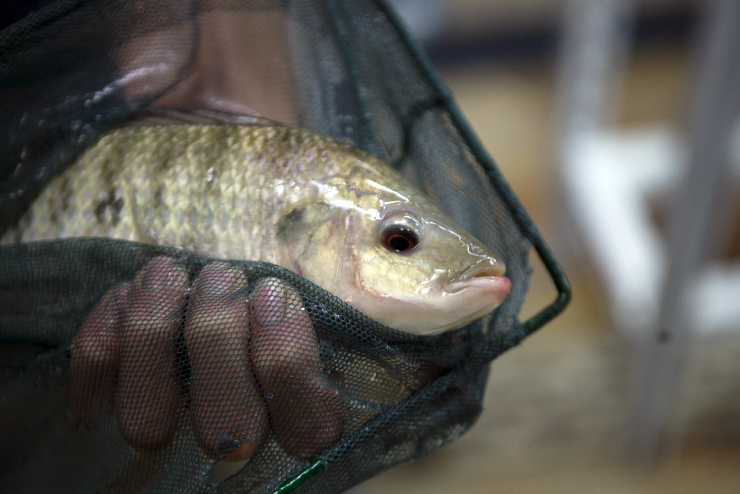
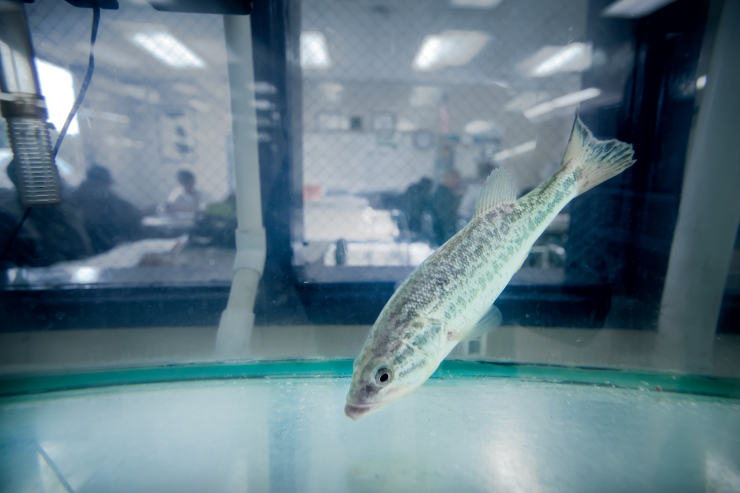

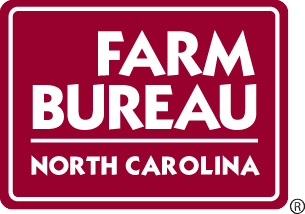
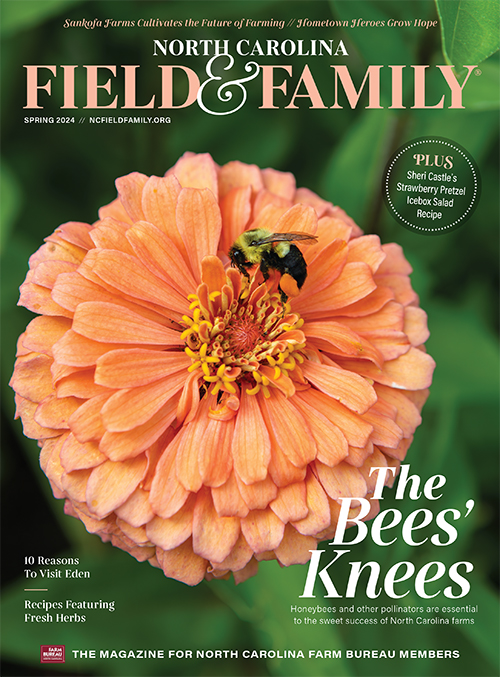 North Carolina Field and Family magazine highlights farms and foods, events and attractions, and interesting people and places throughout the state.
North Carolina Field and Family magazine highlights farms and foods, events and attractions, and interesting people and places throughout the state.
Sharon Moore
October 11, 2011 at 11:48 pm
Nice article. I can almost feel the peace and quiet of the water, and hear the love in the voice of Jarrett’s grandfather as he tells of the fish he caught and the joy he felt at seeing the expression on Jarrett’s face as he reeled in his fish.